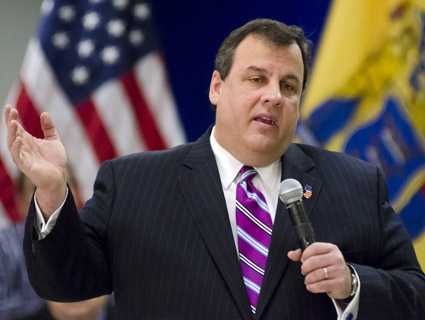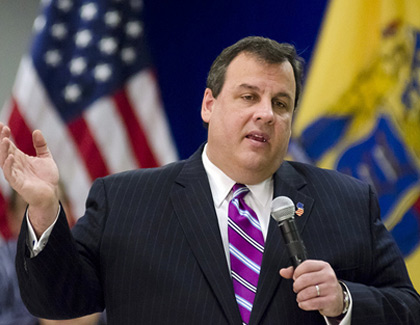For some time now Republican elites have been hoping New Jersey Gov. Chris Christie will enter the GOP presidential race and save the party from a lackluster presidential field. On Tuesday, Christie gave a speech reiterating that he isn’t running—but he also took a strangely aggressive swipe at Texas Gov. Rick Perry for signing a law that granted in-state tuition to undocumented students brought to the US as children, saying that opposing the law wasn’t “a heartless position… That is a common sense position.” (Perry had suggested in the last GOP debate that people who didn’t support the law “don’t have a heart.”)
Why is this strangely aggressive? Because Christie hasn’t exactly been a border hawk up till now. Last year he called on Congress to pass comprehensive immigration reform, saying that lawmakers have to “step up to the plate, they have to secure our borders, and they have to put forward a commonsense path to citizenship for people.” Immigration restrictionists view any support for “comprehensive reform,” which includes a path to citizenship as an admission we won’t be deporting every undocumented person in the country, which for them is unacceptable.
As Dan Amira pointed out yesterday, Christie also understands the difference between being in the country illegally and entering the country illegally, the former being a civil violation and the latter a felony. The distinction, which immigration hawks don’t recognize because they think of all undocumented immigrants as hardcore criminals, is usually used by people who think the US should be focused on deporting unauthorized immigrants who pose an actual threat to public safety. That’s why as US Attorney Christie said, “If there are people out there committing crimes, they should be dealt with,” but that “[b]eing in this country without proper documentation is not a crime.”
Likewise, he hasn’t exactly jumped on the Arizona bandwagon, telling Politico‘s Maggie Haberman and Ben Smith last July that immigration was a federal problem and that restrictive state immigration laws aren’t the answer. “I’m not really comfortable with state law enforcement having a big role,” he noted. He also reiterated his support for a “path to legalization”—this translates to “amnesty” in GOP-base-speak.
Christie’s advantage is that, unlike Perry, he doesn’t have any actual policies to apologize for just statements hinting at a moderate immigration stance. Reversing yourself on past remarks isn’t as hard as explaining away something you’ve signed your name to. So if Christie does choose to run and tack to Perry’s right on immigration (Romney’s strategy of late), he’ll probably have a much easier time than Perry has. The question is whether his new hard line on immigration means getting serious about running for president—or just teasing the GOPers desperate to see him enter the race.















